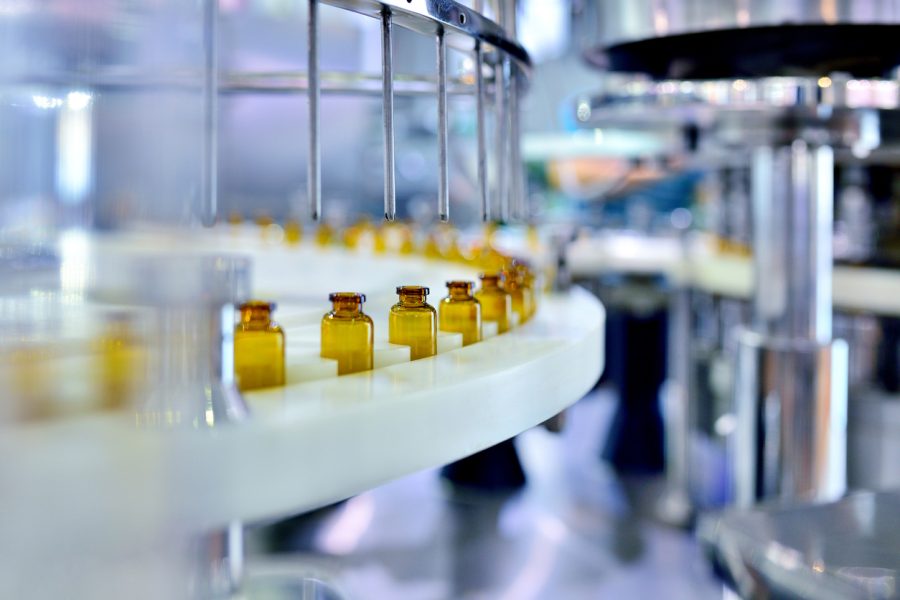
Indian cough syrups smuggled to Bangladesh for tipplers: BSF report
Well before WHO’s alert on India-made expectorants, BSF had red flagged how a cough syrup brand containing codeine phosphate was smuggled to Bangladesh and caused addiction there

Cough syrups manufactured in India have come under the scanner not just for ‘substandard’ quality, but also for ‘illegal diversion’ of stock to a neighbouring country for substance abuse.
Well before the WHO’s recent alert on India-made expectorants, a premier security force of the country had red flagged how a cough syrup brand containing codeine phosphate was causing addiction on a large population in India as well as in Bangladesh.
In a confidential internal report on “Phensedyl smuggling in eastern theatre”, the Border Security Force (BSF) had cautioned that the country’s “poorly resourced” drug and food regulatory system caused risk to foreign and domestic consumers. It pointed out that there were just 1,500 drug inspectors against more than 10,000 factories supplying medicines across the country and exporting to nearly 200 countries.
Very few drug inspectors
“Only 140 drug inspectors have to monitor more than 50,000 pharmacies in West Bengal,” pointed out the report submitted to the special DG of the BSF’s eastern command in 2020.
Also read: ‘Killer cough syrups’ maker Maiden Pharma is a repeat offender in India
BSF officials who are privy to the report said even two years after the force made the Centre aware of the menace, smuggling of the cough syrup to Bangladesh continues unabated as the regulatory system has not been overhauled.
The BSF last year seized 3,06,384 bottles of Phensedyl being smuggled to Bangladesh. The South Bengal Frontier of the BSF alone had seized about 1.64 lakh bottles of the cough syrup during the period.
Bangladesh’s Department of Narcotics Control (DNC) in its annual report said the country’s law enforcers in 2021 seized 5,74,301 bottles of Phensedyl, which is banned in that country.
BSF sources said even this year, huge quantities of the cough syrups are being seized regularly, the latest being on October 6. On that day, the border guarding force under South Bengal Frontier seized 687 bottles of Phensedyl worth ₹1,30,987.
Alcohols and syrups
Since the sale and consumption of liquor is highly regulated in Muslim-majority Bangladesh, the drug became a popular alternative for alcohol.
Per capita alcohol consumption in Bangladesh, according to World Bank data, is just about 0.02 litres annually. Bangladeshi Muslims over the age of 21 can legally drink only if they have a permit issued after a doctor prescribed it for health purposes.
Majority of narcotics users in Bangladesh are habituated to taking multiple drugs, and phensedyl has been popular among them since the 1990s, according to DNC reports. A bottle costs less than ₹200 in India. But the price shoots up to thousands once it crosses the border.
Also read: All you need to know about cough syrups linked to deaths in Gambia
The DNC and other Bangladesh agencies regularly raise the issue of phensedyl smuggling with Indian authorities.
The Indian government had banned Phensedyl in 2016 but the Delhi High Court later revoked the ban on it and other fixed dose combination medicines.
Modus operandi
Explaining the modus operandi of the smuggling, the BSF sources said consignments of cough syrups are illegally brought into northeastern states and West Bengal with forged documents.
Citing a case registered by the Crime Investigation Department of Telangana against phensedyl manufacturer Abbott HealthCare Pvt Ltd and its associates in an alleged case of cough syrup smuggling in 2015, the BSF’s 2020 report gave a detailed account of the methodology adopted in the illegal trade.
The investigation was initiated after cough syrup worth ₹57.5 crore on its way to Bangladesh was intercepted in Shillong in Meghalaya.
“The company, M/S Abbott Health Care Pvt Limited supplied the stocks of Phensedyl from its Baddi plant (in Himachal Pradesh) to its C&F depot at Uppal (in Telangana). The depot invoiced the stocks to specific distributors recruited by the state marketing managers and their subordinates. These ‘retailers’ were billed large quantities of the stock. Investigation reveals most of these retailers don’t exist,” the report pointed out.
“The manufacturer in collusion with their C&F agent and certain pharmaceutical dealer agencies/ individuals diverted this drug to the place of destination. This can be done by falsification of records and making paperwork in the name of non-existent firms or dealers,” the report added.
Also read: Anubrata Mondal arrest sheds light on multi-crore cow smuggling racket
Truckloads of phensedyl from the factory are diverted to the North-East and West Bengal by distributors and stockists using forged documents for the purpose of smuggling, the BSF’s report said.
Poor regulatory system
The entire illegal process is able to thrive because of India’s “unwieldy and poorly resourced drug and food regulatory system,” a BSF source said, quoting the report.
Lacunae in drug regulation in India came to the fore again last week when the WHO linked the four “contaminated” and “substandard” cough syrups manufactured and exported by Haryana-based Maiden Pharmaceuticals to the deaths of 66 children in the West African nation of The Gambia.
Analysis: IndianOil-Beximco LPG venture in limbo amid India-Bangladesh bonhomie

